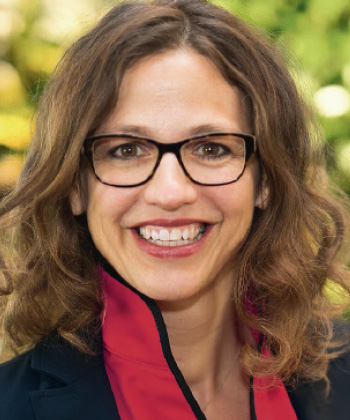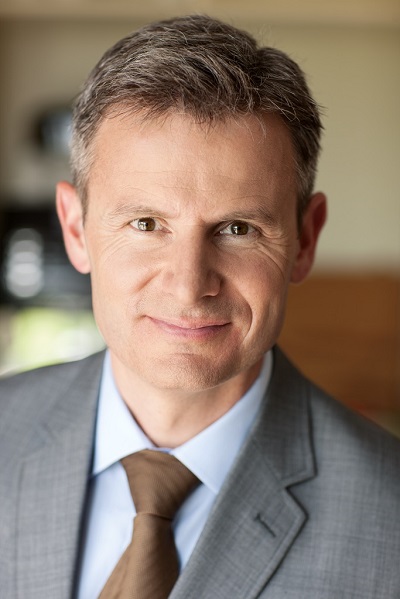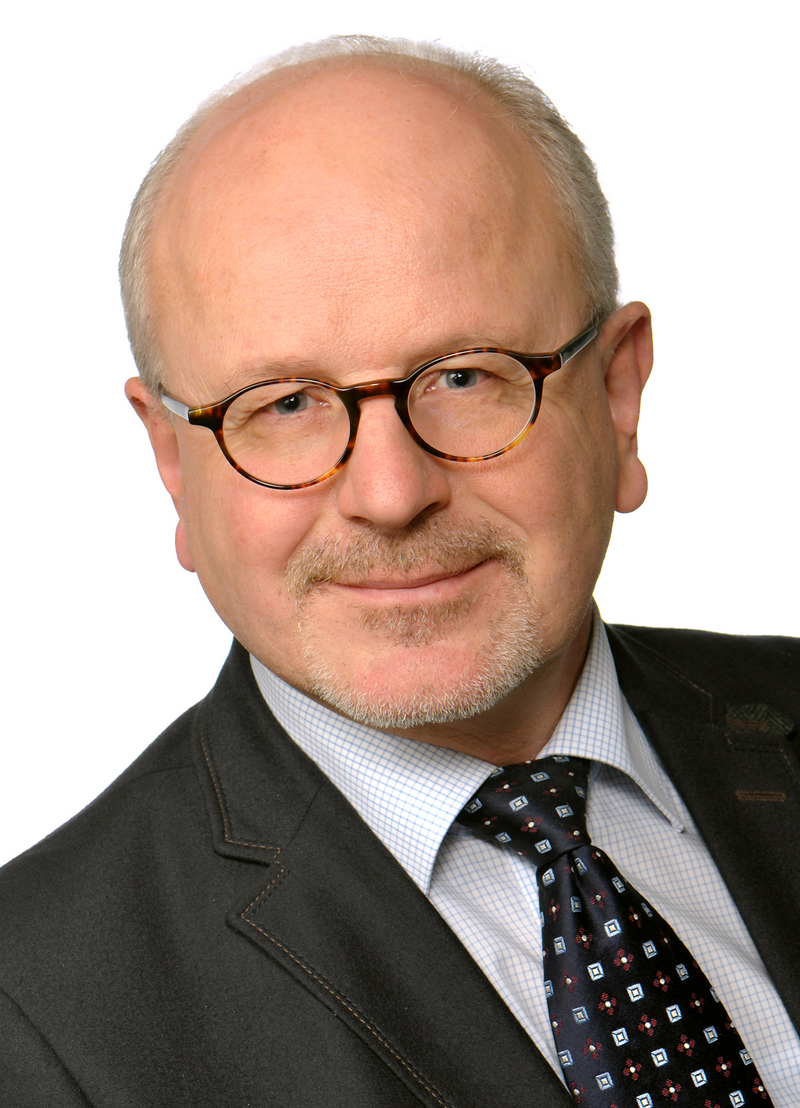Digital change in controlling: overview
The digital transformation is not a temporary and limited phenomenon, but an unstoppable development in all areas of life, work and industry - including in controlling. At this point the International Association of Controllers offers its readers an updated overall view of the status quo of development, but also a preview. We let experts have their say and look outside the box.
Do you have questions, suggestions, interesting controlling relevant contributions, which we can publish here? We look forward to your feedback to web{bei}icv-controlling.com
Digitalization and its consequences for education, training and further education in controlling
Interview with Board Members of the CA controller akademie, Dorothee Deyhle and Prof. Dr. Klaus Eiselmayer

Dorothee Deyhle
- Dipl. Communications Designer
- 1993 to 2013 Managing Partner deyhledesign Werbeagentur GmbH
- Since 2013 Managing Director deyhle & löwe Werbeagentur GmbH
- Member of the Executive Board since 2016 and responsible for brand management and sales CA Akademie AG

Dr. Klaus Eiselmayer
- Graduation: industrial engineering
- Doctorate TU Graz
- Professional experience: Technodat, Porsche, Magna
- Trainer since 1995
- 2007-2013 Board Member and Head of the publishing house Verlag für ControllingWissen VCW and publisher of the Controller Magazin
- Since 2012 Board Member and Technical Director of the CA Akademie AG
- Member of the Executive Committee of the International Group of Controlling IGC
- Member of the Board of the ICV
What does digitalization mean for you?
Dr. Klaus Eiselmayer: First and foremost, it means sensitizing our customers and preparing them for the subject of digitalization with suitable offers, which for many means having to jump on a train that has already set off, which is why you can’t stay lying on the tracks - please allow me this drastic comparison. Exactly for this reason, digitalization has been part of our training programs for quite some time.
Dorothee Deyhle: For us as a training institute, it is also very important to encourage our participants. We want to help them to position themselves well for the coming challenges with the right know-how. We want to encourage our participants to see digital transformation as an opportunity to successfully transform themselves with new skills. We help them to take advantage of the new opportunities created by the change and to grow into new exciting tasks.
Within our training formats today, we offer our customers a range of digital learning opportunities.
Eiselmayer: Under the name "CA on Air" we conduct numerous video trainings, live webinars or, with management reports, an accompanied online training. Our seminar "Level I – Controller’s Best Practice" is also available in blended learning format. Here you can complete the curriculum of 5 days by editing the training material of two days in our learning environment online at your free time, no matter where you are. Self-tests and consultations with the trainer support your learning. This is followed by a 3-day classroom seminar, in which the practical application of the content is deepened and the aspects of presentation, group performance and moderation are treated and trained.
What does digitalization mean for the content of controlling? How do you deal with this as a provider of training and further education in practice?
Eiselmayer: This question has moved many of our participants, so in 2016 we started a seminar tour ("Controlling on the Move") on digitalization: "Controlling excellence in the age of digitalization" led repeatedly to 14 cities last autumn to discuss the topic with the responsible controllers and managers.
Deyhle: Above all, digitalization requires better knowledge in the area of IT, Internet, analytics, programming, statistics, etc. We believe that the expansion of skills in these areas is extremely important. That is why our theme world "information management" is constantly growing in diversity. It deals with the facets of digitalization: data acquisition, business intelligence and Big Data, as well as data analysis, predictive and advanced analytics, or management information design, such as design of dashboards. Here our participants have the opportunity to make an apprenticeship with very different qualification emphases for the Certified Information Manager CA.
In order to successfully cope with the digital transformation, existing business models must be reviewed on a sustainable basis and agile working methods and innovation must be promoted. For this we have e.g. special seminars in the program, such as Effectuation, Lean Management or Agile Project Management. And in 2018 there will be a symposium on business model development and innovation for the first time.
As a provider of training and further education, we are constantly challenged to adapt our product portfolio with regard to current developments, also in the constant exchange with our customers about their current and future needs. In order to provide specialist and management-relevant knowledge and to advise companies well, we must stand by the "pulse of the times" and help drive the development in corporate management. But this also means being well connected and having a continuous exchange of experience with other organizations, universities, the International Group of Controlling IGC and especially with our partner, the International Association of Controllers ICV.
What new skills / abilities / competences does a controller need to learn or purchase?
Eiselmayer: Controllers have sometimes very different CVs. Many have studied business administration, business informatics or industrial engineering. Depending on the content of the study program and the practical experience gained, accounting, modern controlling applications, information management, corporate management and / or social skills should be expanded / supplemented. For this we have set up five own theme worlds at the CA controller akademie.
Some controllers are already practitioners coming from manufacturing, sales, R & D or banking education, looking for taking on a new challenge. Here, the need for basic controlling concepts and their practical application is slightly different.
Deyhle: Controlling is still a process that requires people to work together. New technical possibilities and the automation of standard tasks give controllers freedom and thus the opportunity for further development. It will be important to use these and to expand their competencies. So to become a Business Partner 4.0 who can be not only controller, but also accountant, IT pro, analyst, moderator and coach, and also strategic consultant, change agent and innovator.
Are there training and further education contents that are outdated by digitalization?
Eiselmayer: Here I would answer with a clear "yes and no". In my consulting practice, I meet organizations that are "mature" in terms of a controlling life cycle or those still at the beginning. In the field of non-governmental organizations (NGOs), in research institutions or spin-offs from the "state enterprise" I have worked for some organizations / companies that introduce controlling. There are topics in need there that others have already taken for granted.
Digitalization eliminates the need to manually create standard reports. Some companies have successfully implemented this and already have a "digital boardroom" on their own. However, in many companies reports are still (laboriously) created with Excel.
At the moment it turns out that some education and training contents have become less important, which I attribute as a change of time. The major changes due to digitalization are still to come.
From your point of view, is there any point in time or event that is an incision / kick-off for digitalization in controlling? Or is the development for the controllers a steady?
Eiselmayer: That's an exciting question. Since I started working as a trainer at the CA Academy, which is now 22 years, we have been working with seminar participants on the topic "Scenario of future controller work". Much of what has been "predicted / desired" in all these years is now becoming reality. In this respect, the development is a steady, but the change will soon be abrupt, because extremely many organizations at the same time get new, far more powerful tools in their hands.
Where will controllers / controlling be in ten years compared to today?
Eiselmayer: In ten years, the discussed topics will be implemented on a large scale. Routine activities will be eliminated, reports will come automatically. Monthly reports will still be available, but the focus will be on analyzing real-time data and forecasts. One component of this is Industrie 4.0 and the increasing networking of all market participants.
Deyhle: Here, too, the general question arises for me: Where will be the man and the machine then? What potentials, opportunities or risks will have been created by technological developments and by extremely powerful and very fast-learning machine intelligences? In any case, they will change our job requirements, but also us as humans and our society. Our VUCA world is rounding crazy fast and is making forecasting for the future harder and harder.
What do you give the controlling newcomer for their way?
Eiselmayer: I wish them curiosity and interest in new business models, new tools and visionary ideas. We face huge challenges when we accept them: pollution, climate change, renewable energies, mobility concepts, mega-cities, combating hunger and poverty, access to education for all people, etc.
Deyhle: For all future demands and changes, innovation and creativity, social skills, emotional intelligence and ethics will be even more important than ever before. We should stay flexible and open and be ready to learn new things for life.
Eiselmayer: When artificial intelligence and robots take over work in the future, the next challenges are only waiting to be answered.
Digitalization and its consequences for education, training and further education in controlling
Interview with Prof. Dr. Ronald Gleich, Head of the Horváth Akademie

Prof. Dr. Ronald Michael Gleich
PROFESSIONAL EXPERIENCE
Academic experience
- Since 03/2018 research & education projects, Macedonia
- Since 12/17 Deputy Chairman of the Senate, EBS University, Germany
- Since 06/17 research & education projects, Croatia
- Since 07/09 Head of Department EBS Operations, EBS University, Germany
- Since 11/07 Director, Strascheg Institute for Innovation, Transformation & Entrepreneurship, EBS University, Germany
- Since 09/03 Chair of Industrial Management, EBS University, Germany
- 01/00 Chair Representation, University of Hohenheim, Germany
- 01/96 - 12/98 Habilitant, University of Stuttgart, Germany
- 01/91 - 12/95 Research Associate, University of Stuttgart, Germany
Professional experience
- Since 01/17 Head of the Think Tank, International Association of Controllers
- Since 10/14 Member of the Board of Trustees, Hochschule der Sparkassen Finanzgruppe, Germany
- Since 07/13 Member of the Management Board, IGC - International Group of Controlling
- Since 01/13 Managing Partner of the Horváth Academy, Horváth & Partners
- Since 10/11 Member of the Supervisory Board, Wittenstein AG
- 07/11 - 12/12 Chairman of the Advisory Board, SGP Management Consultants GmbH
- Since 10/10 Founder and Managing Director, C&MEA Controlling & Management Excellence Academy GmbH
- 02/10 - 12/15 Moderator and member of the Innovation Circle, Sparkassen Finanzgruppe
- Since 02/10 Member of the Advisory Board, Gebr. Becker GmbH
- 01/06 - 12/12 Managing Director, EBS Executive Education GmbH, Germany
- 07/05 - 08/07 Scientific Advisory Board, TMG Consultants GmbH
- 04/04 - 12/05 Commercial Director, European Business School gGmbH
- 01/02 - 07/05 Partner of the consulting firm Horváth & Partners, Horváth & Partners
- 01/00 - 12/03 Head of Horváth & Partners Stuttgart office, Horváth & Partners
- 01/99 - 12/01 Head of the Horváth & Partners Competence Center "Controlling Systems", Horváth & Partners
- 07/87 - 08/87 Internship, Bank of Israel, Israel
Education
- 2000 Habilitation, Business Administration, Other, University of Stuttgart, Germany
- 1995 Dr. rer. pol., Business Administration, Accounting, University of Stuttgart, Germany
- 1990 Dipl.-Kfm., Business Administration, Other, University of Stuttgart, Germany
What does digitalization mean for you?
Gleich: There are two facets: the digitalization of processes and the digitalization of things, keyword Internet of Things, IoT. Naturally, as the Horváth Academy, we want to and must integrate everything that includes digitalization aspects. This concerns the contents of our offers for controllers. We therefore offer seminars such as "Digitalization & Industry 4.0 in Controlling".
Of course, a lot changes also within the existing classic tasks, for example in forecasting. The still manual or partially manual processes for the creation are increasingly automated. This particularly applies to reporting. Where time-consuming work was necessary in the past, today statistics and graphics are created completely automatically on the basis of the generated data. Strictly speaking, within a company there is no longer a process without a digital impulse.
But even as a provider, we are affected by digitalization. It is self-evident that we also offer "blended learning" - a combination of classroom instruction and training with e-learning.
What does digitalization mean for the content of controlling? How do you deal with this as a provider of training and further education in practice?
Gleich: Some processes will continue to change dramatically. Of course, as a provider, we have to map that by working with digital models and appropriate software. In addition, we secure qualified scientific support in the person of Prof. Dr. Andreas Seufert, Ludwigshafen University of Applied Sciences. The trend of development in general, but also in controlling is clear: less human, more machine. But that does not apply to the areas of strategy and innovation! Here the man is still irreplaceable.
What new skills / abilities / competences does a controller need to learn or purchase?
Gleich: The controller is increasingly becoming a "Business Analyst" and a "Data Scientist" with the corresponding technical requirements. Controllers have to continue education, for example in the areas of statistical methods, regression analyzes and variance analyzes. You have to know and be able to apply methods. It is of course important to deal with it again and again and to test it, because the development goes on and on. Basically, more and more market knowledge is expected from the controller, so that they can qualify as a business partner of the management on an equal footing and could be recognized as such.
Are there training and further education contents that are outdated by digitalization?
Gleich: It's not so much the content as the tools that have evolved. The basic knowledge is still in demand, certainly enhanced by some new topics. However, tools such as Excel programs for planning and reporting are increasingly losing relevance.
From your point of view, is there any point in time or event that is an incision / kick-off for digitalization in controlling? Or is the development for the controllers a steady?
Gleich: The evolution is an evolutionary one. For example, when we think of the Internet of Things (IoT), there are more and more technologies and opportunities that we do not even know or use today. Regardless, the controller will always be required to generate intelligent information from data, regardless of the technological possibilities.
Where will controllers / controlling be in ten years compared to today?
Gleich: Controlling will be automated, especially for repetitive processes. We will work more and more with artificial intelligence. The sheer number of controllers we know today will go down. In the future, they will no longer be required for standard tasks and processes to the extent that is still the case today. The new tasks bring new requirements with them, for example in the field of creativity. If a controller is willing to get involved, the prospects are good. For everyone else it will certainly be increasingly difficult.
What do you give the controlling newcomer for their way?
Gleich: Get involved early on with BI, data management and statistical methods. An appropriate specialization in bachelor's or master's education can also be helpful. For example, the University of Ulm offers a Master of Science degree in Business Analytics. Otherwise, I recommend to get additional skills at the Horváth Academy, at Haufe or the CA controller akademie. This also means that controllers lose the fear of "distance learning" - it does not always require a complex external seminar, on the contrary: "blended learning" is the future. Here it is important for the individual controller to show openness and to be flexible. Or you can use in-house seminars, which we offer at the Horváth Akademie, so that not only an individual in the enterprise has appropriate knowledge and skills appropriates, but whole ranges are qualified.



